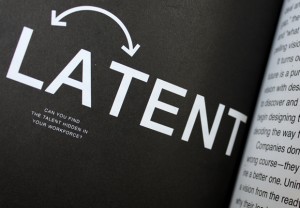
“However you make your living is where your talent lies.” – Ernest Hemingway
I used to worry about whether I could “hit the post” or not. Or if I could come up with something worth hearing. If it was a really good break, sometimes the GM would poke his head in the door and say something. I really loved being on the air.
Now, in a world of continual partial attention, and diminishing interest from the higher ups, I can’t imagine being on-air.
That’s why I admire the people I meet who are dedicated to being the best they can be. They’re just as enthusiastic and having the time of their lives. They care about what they’re doing.
So I just wanted to say thanks, you’re keeping radio alive when ownership and other media have given up on you. I know you feel strongly about creativity in radio. I wish people had a better understanding of the value of talent relative to the music but I’m not sure they do. I can’t tell you how many times I’ve heard, “It’s all about the music.” Or met on-air people who seem to just be “doing their time.”
But many of you defy that. You’re doing what you know will relate and be relevant, and I admire you more than any media mogul I know of.

